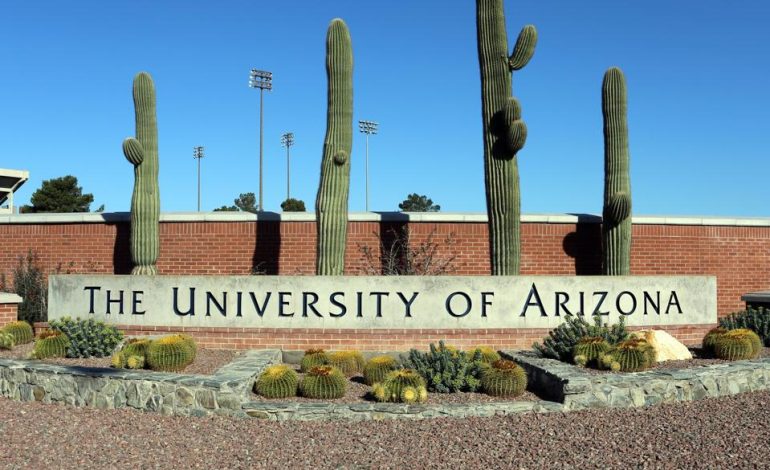The University of Arizona has become the seventh major university to reject President Donald Trump’s proposed “Compact for Academic Excellence in Higher Education,” a sweeping, 10-page document that would tie federal funding to a conservative remake of higher education governance.
Under the compact, universities would be required to freeze tuition for five years, limit international enrollment to 15%, reimpose standardized testing, restrict diversity programs, and combat “left-wing bias” in academic departments. The Department of Justice would oversee compliance, a move many education leaders saw as an unprecedented power grab.
In exchange, universities would receive “preferential treatment” for federal funds, or, as the compact ominously put it, could “forego federal benefits” if they preferred to retain their independence.
Arizona’s president, Suresh Garimella, announced Monday that his institution had declined to sign. In a letter to Education Secretary Linda McMahon, he acknowledged “much common ground” with the administration’s call for reform but drew a clear line: “A federal research funding system based on anything other than merit would weaken the world’s preeminent engine for innovation.”
Garimella’s phrasing was polite but firm, a model of bureaucratic dissent. Translation: we’ll talk about reform, but not at the cost of our autonomy.
While the administration framed the compact as a bid to restore “accountability and balance” to academia, its critics saw a dangerous precedent. The White House’s offer of extra funding to compliant universities, coupled with oversight by the Justice Department, would in effect politicize university governance, something America’s postwar education system was built to resist.

Dr. Jonathan Zimmerman, an American historian of education at the University of Pennsylvania, sees the pushback as both symbolic and structural.
“The Trump Administration was hoping to use its muscle to gain new powers over curriculum, costs, and many other dimensions of higher education,” he told the Wyoming Star. “But the leaders of these institutions recognized,c orrectly, that signing the compact would also sign away their fundamental autonomy. I’m glad they said no.”
For Zimmerman, the conflict is about more than a single policy.
“Surely it’s both,” he said when asked whether this was a battle over academic freedom or part of a deeper political shift. “Of course academic freedom (and, as I note above, autonomy) was very much at stake. But the Trump Administration is also seeking to destabilize the political consensus that has governed higher education since World War II: The federal government will give the universities money, and in exchange the universities will perform research, teach students, and—most of all—strengthen democracy.”
If universities continue to resist, Zimmerman warns, there will be costs.
“It’s too early to say. But if we do lose federal dollars, it will mean we can enroll fewer students. And that will bear disproportionately on the poor and working class, which are already struggling to pay for college.”
For now, none of the nine universities originally approached by the Trump administration have signed. A few, like Arizona State and Washington University in St. Louis, agreed to “participate in dialogue,” but only on their own terms.










The latest news in your social feeds
Subscribe to our social media platforms to stay tuned